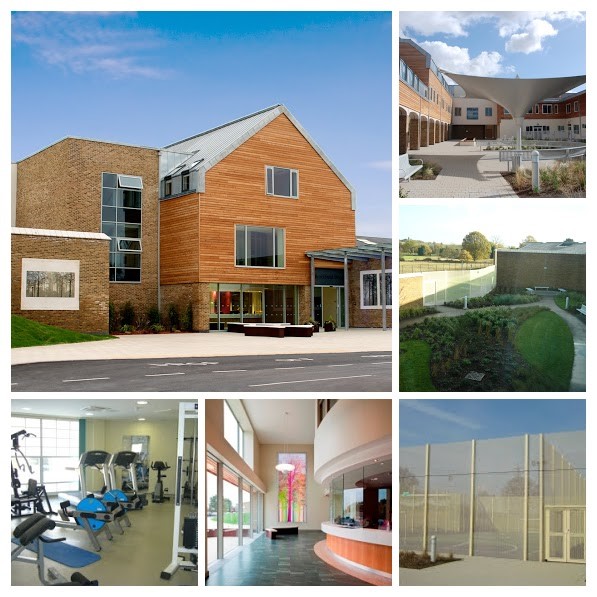The East of England Forensic Training Programme currently spreads across three main sites including posts at Brockfield House in South Essex, posts at Northside House in Norwich and posts at the George MacKenzie unit in Cambridge, along with other community and prison posts. Trainees also have opportunity to obtain high secure placements either at Broadmoor or Rampton Hospital.

In general, in order to minimise commuting and disruption where possible, trainees will typically be part of a rotation either based in Essex (three years), or split between Cambridge (one year) and Norwich (two years). Brockfield House is particularly attractive to trainees living in London as it has excellent transport links.
The rotation offers a three year training programme for the core skills and training of a forensic psychiatrist to be developed. It is an exciting rotation with various placements on the scheme. We also offer experience in three prisons across the region for specialist interest session as part of the training. In addition to this, there is experience in court diversion, women’s services, personality disorder services and acute and rehabilitative medium and low security along with the opportunity to gain experience in learning disability.
On successful completion of 3 years of training, you will receive a certificate of completion of training (CCT) in Forensic Psychiatry. You are then eligible for entry onto the General Medical Council’s specialist register and can apply for a job as a consultant forensic psychiatrist.
Curriculum and Associated Assessment System: https://www.gmc-uk.org/education/standards-guidance-and-curricula/curricula/forensic-psychiatry-curriculum
- Brockfield House (Essex Partnership University NHS Foundation Trust)
The secure hospital is based in Wickford, Essex. It is a purpose built 88 bedded unit, having two low secure wards (male and female), two acute medium secure wards (male), one acute secure ward (female), one medium secure rehabilitation ward, and pre discharge ward. Trainees are expected to spend at least 18 months on a medium secure ward and six weeks in a high secure placement. Recently, a specialist community forensic post has been created and trainees have the option to spend sixmonths with this team, subject to number of trainees and trainees’ needs.
- Northside House (Norfolk & Suffolk NHS Foundation Trust)
This is a secure unit for male patients located in Norwich. It has male medium secure wards and one low secure ward.
- Hellesdon hospital (Norfolk & Suffolk NHS Foundation Trust)
This is a ‘blended’ female secure ward (low and medium), located in Norwich.
In addition, trainees get the opportunity to conduct clinic sessions at HMP Norwich on a weekly basis. There is also a forensic community mental health team based at Hellesdon Hospital. Rotations usually involve 12 monthly postings at either site.
- George MacKenzie House (Cambridgeshire & Peterborough NHS Foundation Trust)
This is a 20 bedded low secure unit (blended ward- 10 male and 10 female beds with 3 extra beds in acute ward), located on Fulbourn site, Cambridge. Rotation is usually for a year.
- Outpatients Community teams (Cambridgeshire & Peterborough NHS Foundation Trust) - South team
This is based at Windsor office, Fulbourn Hospital whereas North team is based in Thorpe Park in Peterborough.
Forensic Academic programme every Monday afternoon 1pm-2pm. Trainees are encouraged to present 2-3 times in an academic year, but external speakers are also invited to teach.
Trainees at Brockfield House also get weekly forensic psychotherapy teaching sessions by a senior psychotherapist, Dr Jane Polden, every Monday morning from 1030am-12pm. This usually involves discussing a paper on relevant topics pertaining to forensic psychotherapy and then discussing clinical cases. Other trusts also offer weekly balint groups for higher trainees in forensic psychiatry.
Norfolk & Suffolk NHS Trust also runs weekly academic sessions every Wednesday lunchtime.
There are a number of opportunities available – LLM, Medical education, ASD, ADHD, Learning Disability, Prison Clinics, Drug and Alcohol services etc.
This is dependent on individual’s interest. They vary from teaching opportunities within Trust and to UEA medical undergraduates, to psychotherapy sessions and prison sessions at HMP Norwich.
Trainees have the opportunity to attend the LeAP (Leadership Programme for Trainee Doctors) designed to support trainee doctors in meeting the management and leadership components of their curriculum. There are other leadership courses offered within EoE and trainees can apply to those.
This varies according to individual, but in general one day a week is set for meetings e.g., referrals meetings/professional meetings/educational programme etc, and one day for inpatient clinical work. Other days are flexible and usually spent assessing patients, completing reports, attending prisons/community, clinical admin, supervision, or special interest. There is good exposure in doing gate keeping assessments in Prison and writing Tribunal and Court reports for various purposes under supervision.
Dr Dillon writes about his experience with Forensic training in the East of England (Aug 2023):

I’ve just completed my first year of higher training in forensic psychiatry in EoE, and have so far found the experience extremely interesting and enjoyable. During ST4 I spent half of each week on Whitlingham Ward, a blended low/medium women’s secure unit, and the other half with the forensic CMHT, both based at Hellesdon Hospital in Norwich. Both teams have been very welcoming and helpful, and I feel that I’ve been able to gain a lot of experience in quite varied settings. During ST4 I’ve also had the opportunity to visit prisons for gatekeeping assessments and court reports, and felt well supported by my supervisor throughout this. There’s also the opportunity to take part in prison clinics, and I plan to do a weekly clinic at HMP Norwich during ST5.
Forensic trainees in EoE also have the opportunity to present at the Forensic Academic Programme, twice-monthly teaching session that covers topics specific to forensic psychiatry. There is also a twice-monthly peer-led group that focuses specifically on medico-legal work, often looking in detail at and discussing court reports. As well as this, trainees in Norfolk have access to a weekly psychotherapy forensic case-discussion group and are encouraged to attend the weekly Trustwide postgraduate academic programme. I’ve found the consultant team very supportive of trainees’ ideas about potential special interest work or attempts to seek specific areas of development. During ST4, I’ve been able to develop an interest in psychodynamic psychotherapy, taking on a case for this and joining a new Balint group aimed specifically at higher trainees.
At the end of my first year in Norwich, I’d highly recommend it to other trainees considering a post in forensic psychiatry.
Dr Odutola writes about his experience with Forensic training in the East of England (Aug 2023):

Forensic psychiatry is a branch of psychiatry that deals with the intersection of mental health and the legal system. It involves assessing and treating individuals who are involved in legal matters, such as criminal cases or civil litigation, and who may have mental health issues relevant to their legal proceedings. Forensic Psychiatrists work regularly as expert witnesses and this aspect of practice is an essential part of training.
My forensic psychiatry training in the East of England has been both enriching and challenging. Working with a diverse patient population with different forensic histories and accessing well-established forensic psychiatric services has enhanced my skills and cultural competency. I have had opportunities to assess and formulate specialized treatment plans for complex forensic patients including female offenders with personality disorders and complex needs.
Furthermore, I’ve had the unique opportunity to actively engage in gatekeeping assessments, carry out prison assessments, meticulously craft court reports, and participate in workshops focused on giving oral evidence. Crafting court reports has been a rewarding task as it has enabled me to communicate complex psychiatric findings effectively to legal professionals.
The workshops dedicated to giving oral evidence is a pivotal aspect of training as it equips trainees with the skills and confidence necessary to provide expert testimony in court, a skill set that is fundamental in the field of forensic psychiatry. However, the high demand for services can lead to heavy workloads and commuting challenges. Despite these hurdles, the region offers strong support from experienced mentors and opportunities for research. Overall, it's a rewarding journey that prepares trainees for a successful career in forensic psychiatry.
Dr Nick Hallett is Training Programme Director based at Brockfield House, Wickford. Please feel free to contact him if you have any queries about the programme. His email is nick.hallett@nhs.net.
